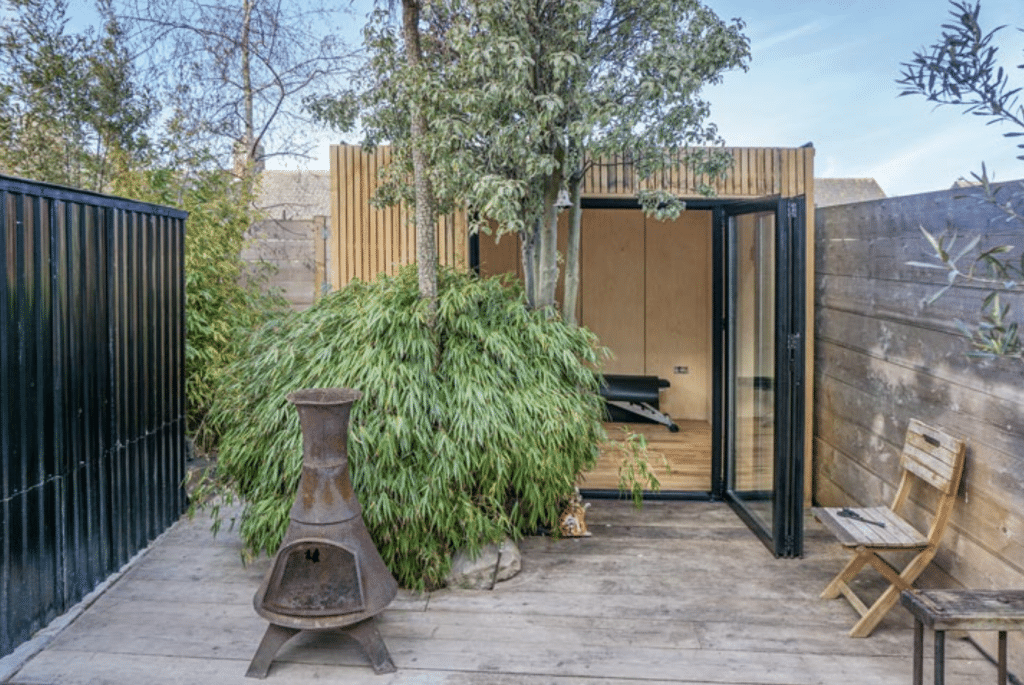In recent years, the concept of a garden office and prefab ADU has blossomed, particularly as the COVID-19 pandemic shifted work dynamics to embrace remote working. This unique workspace solution offers an affordable and practical way to utilize outdoor space effectively, blending functionality with the beauty of nature.
Understanding the Purpose of a Garden Office
A garden office is more than just a workspace; it’s a sanctuary of productivity set against the tranquility of your garden. These structures have gained popularity for their dual role: providing a professional work environment and enhancing the aesthetic appeal of your outdoor space.
Selecting the Right Location
The foundation of a successful office shed lies in its location. A spot that receives ample sunlight offers privacy, and remains conveniently close to your home strikes the perfect balance. This strategic positioning fuels productivity and ensures the office is a harmonious extension of your home environment.
Design and Material Considerations
When it comes to design, the spectrum is wide, offering styles that can cater to various tastes and budgets. Material choice plays a crucial role in the longevity and maintenance of the office. Timber, known for its natural insulation properties, is a popular choice, but there are also non-natural options that offer durability and aesthetic appeal.
Key Features to Look for in a Garden Office
It’s essential to focus on the key features of a garden office. These core elements are the building blocks to ensure your garden office is not just a structure but a comfortable, secure, and efficient workspace. Each feature plays a pivotal role, from safeguarding your equipment to ensuring a pleasant working environment. Each of these features contributes to creating a space that’s practical and a joy to work in, blending seamlessly with your home and lifestyle.
Security: Security should not be overlooked despite its location in your garden. Robust locks and possible alarm systems are essential to protect valuable equipment.
Comfort: The comfort of your garden office is paramount. Proper insulation, effective heating and cooling systems, and thoughtful placement to maximize natural light while ensuring privacy are key elements that influence the daily use of the space.
Damp-resistance: Selecting the right building materials is crucial to avoid moisture-related issues. A thickness of at least 45mm for timber is recommended, coupled with treatments to prevent moisture penetration.
Space: The size of your garden office should reflect your current and future needs, considering factors like meeting spaces or potential business expansion.
Connectivity: Ensuring reliable internet and electricity supply is critical for a functional office space. Proximity to the house can influence Wi-Fi connectivity, while electrical needs require a dedicated line from your home.
Cost Implications and Value Addition
Garden offices are an investment, with costs ranging from £5,000 to £50,000 depending on size, materials, and customization. While the initial outlay may seem significant, adding a garden office often enhances the overall value of your property, making it a worthwhile investment.
Planning and Regulations
Navigating planning permissions and regulations is crucial in setting up your garden office. In most cases, garden offices fall under outbuildings and do not require special permissions if they meet specific size and location criteria and are used for incidental work. However, it’s always wise to check local regulations, especially if your property is in a conservation area or is a listed building.
Furnishing and Equipping Your Garden Office
Furnishing your garden office is not just about aesthetics; it’s about creating a space where productivity thrives. Ergonomic furniture, effective storage solutions, and lighting that includes natural and artificial sources are key to creating a conducive work environment.
Enhancing Garden Office Experience
The surroundings of your garden office significantly impact your work experience. Landscaping, whether adding a patio, a water feature, or greenery, plays a big role in creating a serene and inviting workspace. Personal touches and ergonomic considerations will make your garden office uniquely yours.
Conclusion
A garden office is not just a workspace; it’s a lifestyle choice that offers many benefits, from boosting productivity to enhancing work-life balance. With careful planning, thoughtful design, and consideration of the key features discussed, you can create a garden office that meets your professional needs and becomes a cherished part of your home.
Angela Spearman is a journalist at EzineMark who enjoys writing about the latest trending technology and business news.

